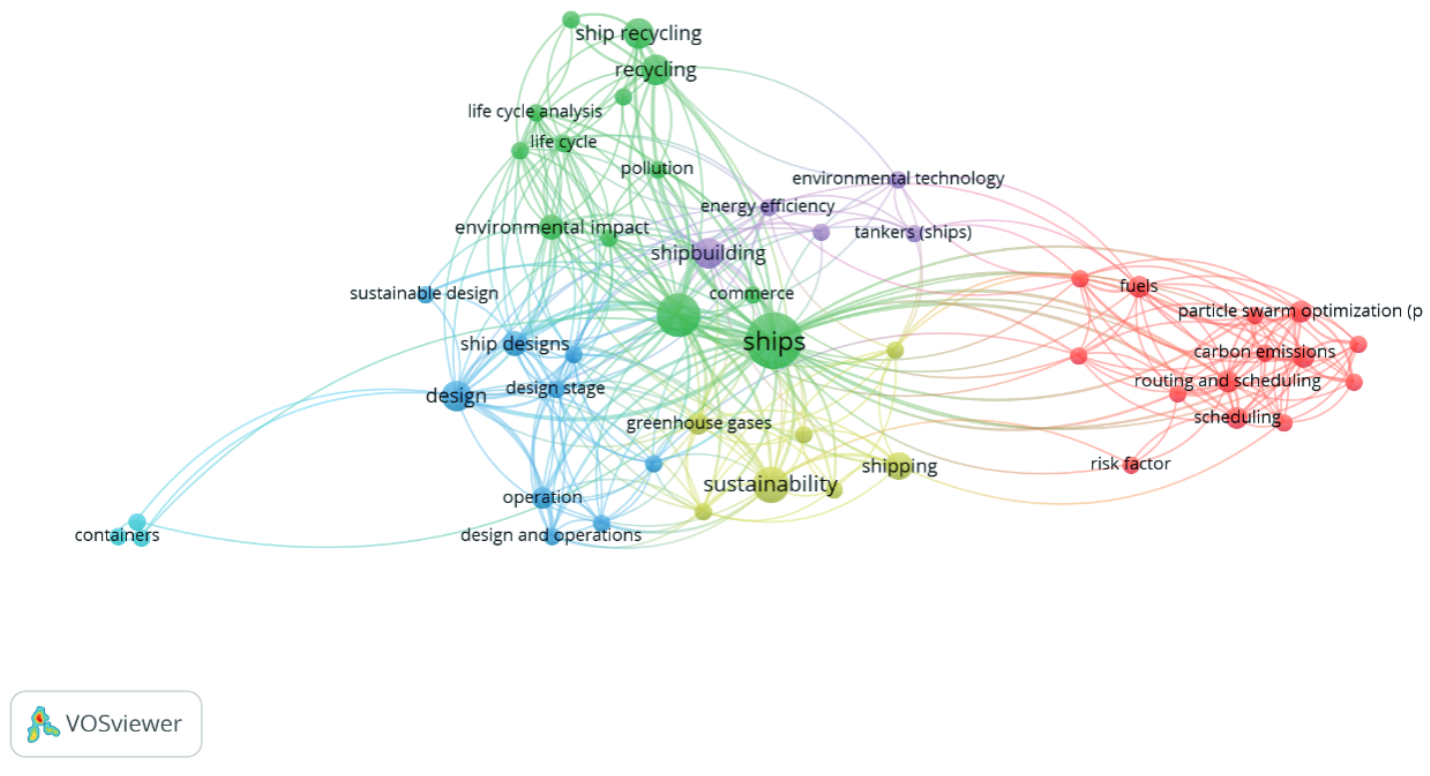Navigating towards sustainable vessels: state of the industry and its relationship to SDGs
DOI:
https://doi.org/10.25043/19098642.250Keywords:
shipyards, shipbuilding, sustainable vessels, Sustainable Development Goals -SDGs, sustainabilityAbstract
It is a fact that the maritime industry is betting on sustainability and decarbonization in its value chain. This implies designing and building sustainable vessels, which requires focusing not only on technical aspects of functionality and quality, but also on solutions that reduce the environmental impacts of the product throughout its life cycle while generating a positive social impact. This paper answers the question: What are the sustainable technology solutions - products and services - that, aligned with the SDG agenda, are being adopted by global shipyards today? The study follows a mixed methodology with a quantitative descriptive approach and qualitative approach using the content analysis technique by reviewing the sustainability reports available for public consultation of global shipbuilding companies as of 2021. (1) the average number of SDGs to which the industry claims to contribute is provided: 3, 7, 8, 9, 12, 13, 14 y 17. The industry is contributing through innovation projects focused on the design and construction of intelligent, efficient and sustainable vessels, including platforms for the off-shore wind power market, zero-emission hydrogen-powered ships, technologies to reduce waste, technologies for automation and energy efficiency, and solutions for social benefit in communities, among others. This study has practical implications for emerging markets wishing to venture into sustainability issues as it provides a global perspective, trends and portfolio of solutions being adopted in the industry.
Downloads
References
AIT ALLAL, A., MANSOURI, K., YOUSSFI, M., QBADOU, M., & EL HAD, K. (2020). Shipyard Impact Assessment for a ustainable Ships'Maintenance and Repair Activity in West Africa. In International Conference on Advanced Intelligent Systems for Sustainable Development (pp. 593-606). Springer, Cham. https://doi.org/10.1007/978-3-030-36671-1_53
CEREZO-NARVÁEZ, A.; PASTOR-FERNÁNDEZ, A.; OTERO-MATEO, M.; BALLESTEROS-PÉREZ, P.; RODRÍGUEZ-PECCI, F. (2021). Knowledge as an Organizational Asset for Managing Complex Projects: The Case of Naval Platforms. Sustainability, 13, 885. https://doi.org/10.3390/su130208853.
COSTA, R., MENICHINI, T., & SALIERNO, G. (2022). Do SDGs Really Matter for Business? Using GRI Sustainability Reporting to Answer the Question. European Journal of Sustainable Development, 11(1), 113-113. doi: https://doi.org/10.14207/ejsd.2022.v11n1p113
JOKINEN, L., MÄKELÄ, M., HEIKKILÄ, K., APOSTOL, O., KALLIOMÄKI, H., & SAARNI, J. (2022). Creating futures images for sustainable cruise ships: Insights on collaborative foresight for sustainability enhancement. Futures, 135, 102873.5 https://doi.org/10.1016/j.futures.2021.102873
KÖNNÖLÄ, K., KANGAS, K., SEPPÄLÄ, K., MÄKELÄ, M., & LEHTONEN, T. (2020). Considering sustainability in cruise vessel design and construction based on existing sustainability certification systems. Journal of Cleaner Production, 259, 120763. https://doi.org/10.1016/j.jclepro.2020.120763
OCAMPO,E. S., & PEREIR A, N. N. (2019). Can ship recycling be a sustainable activity practiced in Brazil?. Journal of Cleaner Production, 224, 981-993. https://doi.org/10.1016/j.jclepro.2019.03.173
PARA‐GONZÁLEZ, L., MASCAR AQUE‐R AMÍREZ, C., & CUBILLAS‐PAR A, C. (2020). Maximizing performance through CSR: The mediator role of the CSR principles in the shipbuilding industry. Corporate Social Responsibility and Environmental Management, 27(6), 2804-2815. https://doi.org/10.1002/csr.2004
SAETHER, E. A., EIDE, A. E., & BJØRGUM, Ø. (2021). Sustainability among Norwegian maritime firms: Green strategy and innovation as mediators of long‐term orientation and emission reduction. Business Strategy and the Environment, 30(5), 2382-2395. doi: https://doi.org/10.1002/bse.2752
STRANDHAGEN, J. W., BUER, S. V., SEMINI, M., ALFNES, E., & STRANDHAGEN, J. O. (2020). Sustainability challenges and how Industry 4.0 technologies can address them: a case study of a shipbuilding supply chain. Production Planning & Control, 1-16. https://doi.org/10.1080/09537287.2020.1837940
WADA, Y.; YAMAMUR A, T.; HAMADA, K.;WANAKA, S. (2021) Evaluation of GHG Emission Measures Based on Shipping and Shipbuilding Market Forecasting. Sustainability, 13, 2760. https://doi.org/10.3390/su13052760

Downloads
Published
How to Cite
Issue
Section
License
Copyright (c) 2024 Cotecmar

This work is licensed under a Creative Commons Attribution 4.0 International License.
The authors who publish in this Journal certify that:
- The work submitted for publication in The Ship Science and Technology journal, was written by the author, given that its content is the product of his/her direct intellectual contribution.
- All data and references to material already published are duly identified with their respective credits and are included in the bibliographic notes and quotations highlighted as such.
- All materials submitted for publication are completely free of copyrights; consequently, the author accepts responsibility for any lawsuit or claim related with Intellectual Property Rights thereof, Exonerating of responsibility to The Science and Technology for the Development of Naval, Maritime, and Riverine Industry Corporation, COTECMAR.
- In the event that the article is chosen for publication by The Ship Science and Technology journal, the author state that he/she totally transfers reproduction rights of such to The Science and Technology for the Development of Naval, Maritime, and Riverine Industry Corporation, COTECMAR.
- The authors retain the copyright and transfer to COTECMAR the right of publication and reproduction of the work which will be simultaneously subject to the Creative Commons Attribution License (CC -BY) , which allows the license to copy, distribute, display and represent the work and to make derivative works as long as it recognizes and cites the work in the manner specified by the author or licensor.
- For more information about the Creative Commons Attribution License (CC -BY) and his use and scope, please visit the following web page https://creativecommons.org/licenses/by-sa/4.0/legalcode








